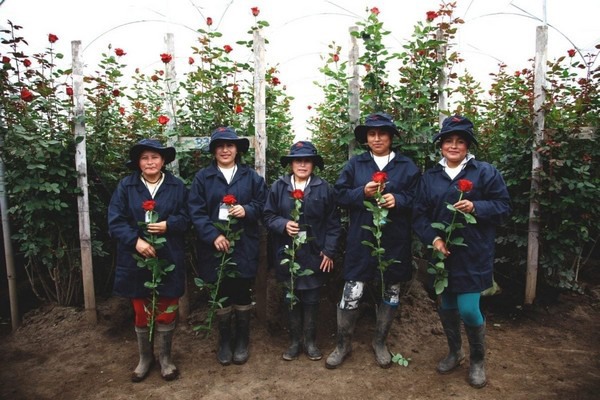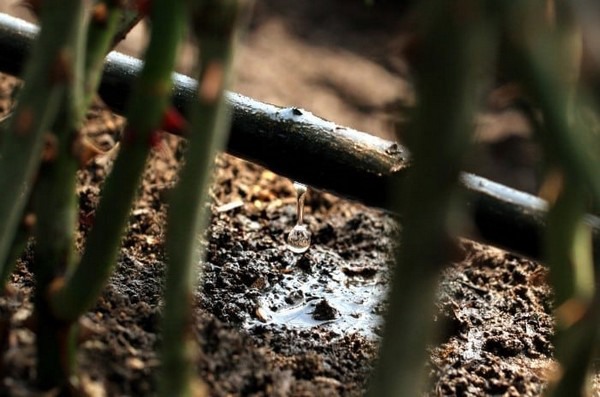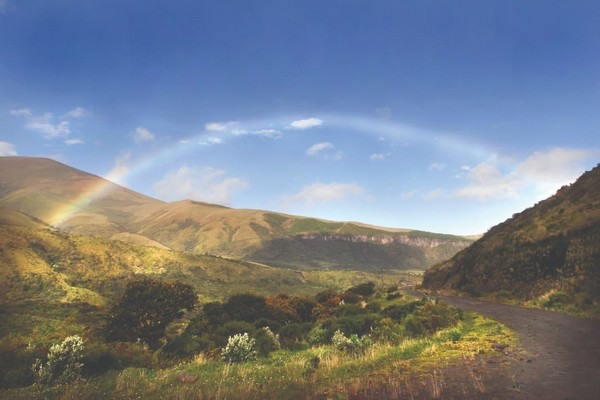“While a big focus for us is to continually innovate and improve, the tradition of inspecting each rose individually remains highly important for us. This personal aspect that our ‘rose artisans’ contribute is what makes our work different from others,” says Natasha Viedt, Marketing Manager at the 400 acre rose farm in Ecuador. In this article, Viedt discusses saving 300 million liters of water, providing gender equality at the workplace, and the story behind their newest varieties. 
Recently, Rosaprima announced the arrival of 13 new varieties and two more have launched just this week. According to Viedt, there is quite a process behind these new roses. “It is very hard work for our rose artisans and they do it with a lot of passion. We have people coming in the greenhouses every day to personally check on each rose to ensure the results are perfect. That is why technological advancement will never replace the value of our workers.”
At the farm, there is a separate experimental area, which is where they test all the possible new varieties. Here, they plant over 200 test variety codes each year and carefully select the best to add to their catalog. Depending on the variety, this process can take up to two years, and Rosaprima takes a lot of pride in it. “We invest a lot of patience, hard work, and money in the process, and only the best varieties make it through.”
RP Lady Eva
Rosaprima exclusives
So what are the latest varieties that made the cut? With their newest introductions, Rosaprima attempts to find the perfect balance between preserving the timeless classics and adding new varieties to enrich their collection. Three of their newly introduced varieties are Rosaprima exclusives, meaning that nobody else in the world has them. The first one is RP Lady Eva, a sandy rose that is highlighted by the slighted touch of pink at its outer petals. RP Copper Kiss is a small rose with ruffled petals all around. The rose has a matte earth tone that deepens at the center into a burst of orange. Lastly, there is an exclusive variety that is brand new and was launched only this week: RP Moab. This rose is named after the rocky peaks and outstretched canyons of Moab, Utah. The rose has a warm mauve shade that blooms into a dusty earth-toned bud. “Our newest introductions will be the last of this year, but we have lots of exciting surprises in the works for 2022.”
Click here to see all of Rosaprima’s newest varieties. 
RP Copper Kiss and RP Moab
300 million liters of water and 100,000 trees
Besides their rose novelties, Ecuadorian farm also values innovations that improve their sustainability. “We are one of the few farms in Ecuador that have invested in a state-of-the-art irrigation system. This saves us more than 300 million liters of water per year and ensures our plants get the perfect amount of water. We also have two of our own water reservoirs to increase our use of rainwater, and we treat our wastewater so that we don’t contaminate our surroundings.”
Rosaprima has also reforested at least 20% of its land with native trees and plants. “This is important because many farms in Ecuador get rid of everything for their processes, which is, of course, terrible for the environment. Therefore, we have planted over 100,000 trees on-site to restore some of the region’s biological diversity.” In the greenhouses themselves, mint plants are planted at the end of each bed as a natural pesticide. As a result of their environmental efforts, the company is certified by the Rainforest Alliance, BASC, and Flor Ecuador.
Social impact
That is not where the flower company’s good work ends. “In total, we have around 1600 people working at Rosaprima, and we make it a priority that they are well taken care of. For example, we have our own medical clinic, and we provide free medical services for workers. We also work with our neighboring farmers and provide educational assistance. Here in Ecuador, gender equality is definitely not self-evident, so this is something we value at our company as well. At the farm level, we employ 46% women and 54% men, while at the corporate level, 54% are women and 46% are men. We are also proud to be one of the region’s major employers and to contribute to restoring the balance in family structures. As Ecuadorian women have always been vulnerable, we can now provide them with a steady job and income, as well as the proper medical care.”
For more information:
Rosaprima
Natasha Viedt
[email protected]
www.rosaprima.com
Sign up for our daily Newsletter and stay up to date with all the latest news!
Subscribe I am already a subscriber